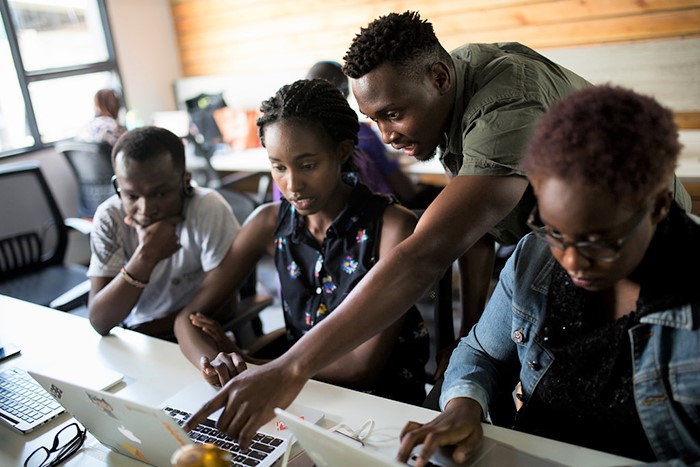Equipping youth with skills for the future
July 15, 2022

With the youngest population in the world, Africa now has the chance to transform its future. More than 70 percent of the population is under the age of 30. Yet, this promise for transformation remains untapped. Many of these young people are either unemployed or underemployed with few prospects for decent and fulfilling work. The gap between youth skills and the marketplace is often cited as one of the reasons for this disconnect.
Relevant skills are needed but our systems are falling short
Ramping up education and skills development as outlined in Sustainable Development Goals is now urgent. SDG target 4.4 calls for a ‘substantial increase in the number of youth and adults who have relevant skills.’ Yet our current system is falling short. Evidence shows that in many cases, formal education is failing to address the learning needs of Africa’s young people and diverse workspaces.
With the exponential rise in technological advancements, the skills gap is widening. Technological ability is currently considered the most important skill required. The value of technological competence cannot be underestimated. However, today’s youth need to cultivate a new set of intelligence and skills to keep up with the lightning-pace of this changing world.
These skills of the future must go beyond technological competence
Reflecting on the needs of the future on World Youth Skills Day points to three skills that youth need to unlock current and future opportunities. These include Digital Intelligence, Relational Intelligence and Collective Intelligence.
Youth skills must balance digital life with real life
Digital intelligence will help Africa’s youth to navigate the real impact of emerging digital technologies. On one hand, technological advancement is creating positive benefits by easily connecting people and ideas across space and time. Yet, this intense interaction with diverse tools can result in negative consequences such as digital addiction and the rapid spread of disinformation.
To mitigate this, users need Digital Intelligence. This is the ability to question ‘When, What, Where, Why, Who and How much’ of their relationship with digital technologies. High Digital Intelligence will enable the youth to overcome the challenges and demands of digital life including application of new digital knowledge and skills while maintaining a connection with real life.
Youth skills must build connections between people
Secondly, relational intelligence will help youth to protect human interaction. In today’s digital world, online acquaintances are often mistaken for real friends. Affirmation is determined by the number of ‘likes’, and ‘influencers’ have become the new mentors. Navigating social situations in a technologically advanced world calls for a high level of Relational Intelligence. Protecting relationships in real life and the space they occupy will help young people invest the right amount of time and effort in relationships that enhance their lives.
Youth skills must power collective action
Thirdly, Collective Intelligence recognises that everyone has skills, knowledge or areas of expertise that bring value to the group. It has been said that ‘If you want to go fast, go alone, if you want to go far, go together’ (African proverb). To find solutions to current and future problems, the youth need to appreciate the value of working together.
Growing youth skills creates a fairer future in a digital society
As young people are creating their future now, applying these skills will help to make it fairer and more equal. The future is digital, so achieving a fair and just future requires youth to keep people and ethics at the centre of technological advancement. We already have some good examples of African youth at the forefront of using technology to co-create a future for people with different abilities in Ghana.
Students from the Kwame Nkrumah University of Science and Technology and the University of Cape Coast have developed Ghana’s first AI robot to assist persons with disabilities. The robot reads body language in order to feed people who are unable to use their hands. Similarly, Tech Era, a social enterprise run by young people, is helping youth to develop affordable and accessible assistive technology for people living with disabilities in Ghana. In addition, iStammer app, a digital solution by young innovators connects stammers to speech therapists to enhance their speaking abilities, confidence and inclusion.
These innovations show what youth can do when they fully utilise digital knowledge as well as relational and collaboration skills. They are changing the world and ensuring that no one is left behind.
Investing in youth skills is the key to our common future
At the 2021 YouthConnekt Summit hosted by the Government of Ghana and supported by UNDP, the message was clear. ‘Demographic dividends do not come automatically; they have to be earned. To realise the dividend, African countries have to invest in the empowerment, training and employment of our young people. The time to invest in equipping our youth with skills for the future is now.
'African countries have to invest in the empowerment, training and employment of our young people. The time to invest in equipping our youth with skills for the future is now' ~Angela Lusigi

 Locations
Locations